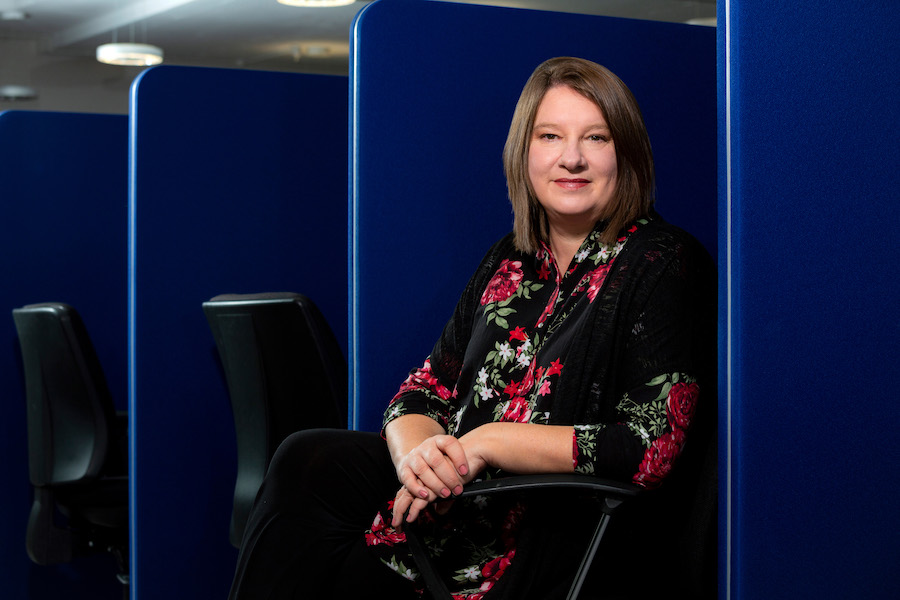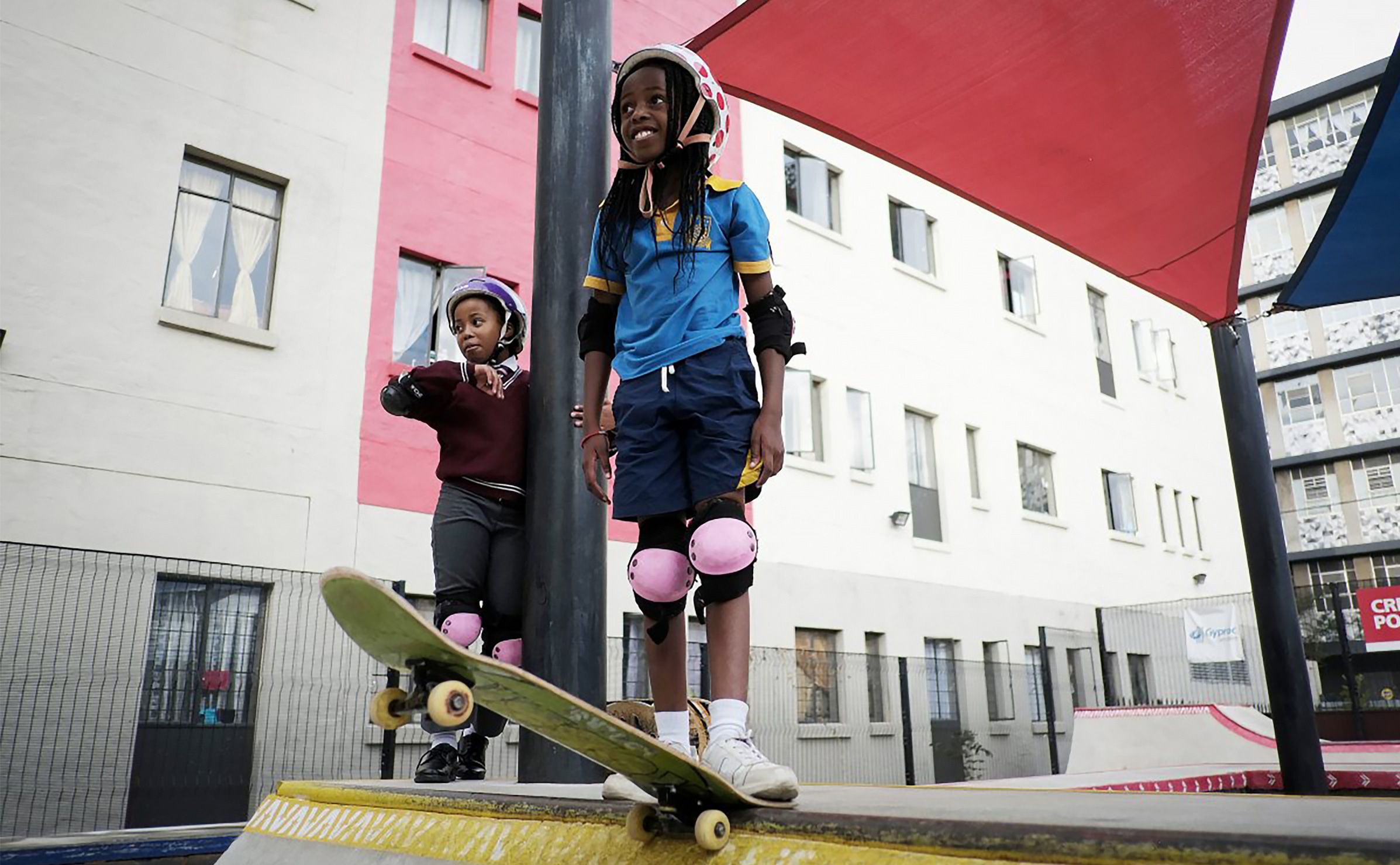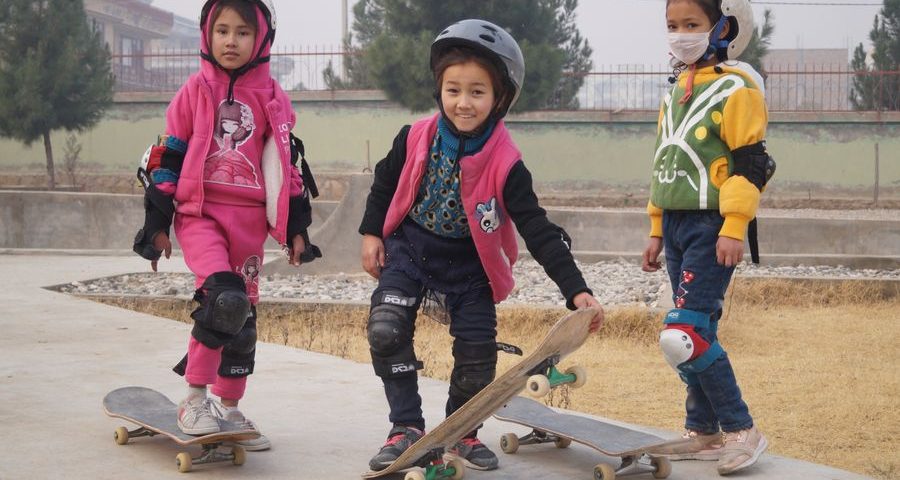
Interview with Katie Docherty: Returning to my fundraising roots
February 9, 2022
Special focus: Inspiring major donor giving
February 9, 2022What changes can organisations make to redress the gender balance? In this case study, Oliver Percovich, founder and executive director of Skateistan – an international Berlin-based organisation that combines skateboarding with education – explains how the organisation’s girls-first policy is helping to drive cultural change and inspire a new generation of women leaders.
From the start, when Skateistan worked on the streets of Kabul, our programmes had a girls-first policy. It began with skateboarding, but eventually grew to incorporate education too. By giving girls and women at least 50 percent of the opportunities available in our programming, as well as prioritising them for professional opportunities within the organisation, we grew an organisation that put women first.
The girls-first approach came about from the lack of opportunities for girls in civil society in Afghanistan, a country where women have significantly less rights and freedoms than men. Historically, foreign interventions claiming to want to establish gender equality in the region have failed to do so. We hoped that young people, especially women, could become the change and enact the transformation that they wanted to see. So, our approach was to support a localisation of women’s empowerment through strong female Afghan role models.
Making the policy a reality
The important part of implementing this policy is to put adequate resources towards it. A girl might need 50 percent more resources to have the same opportunity as a boy. For example, we provide transport and home visits to increase girls’ participation. We do not do that for boys. It might cost 10-15 percent more to employ women long-term in an organisation, which we accept because without women in the workforce, you lose much more than the extra that you put in. Globally, women face discrimination and to improve their participation in the workplace and other parts of society, it is essential to provide them with extra resources (not only resources equal to those that men receive).

Skaters in Johannesburg. Photo by Andy Buchanan for Skateistan
Appointing women leaders
Having women leaders at all our schools globally was intended to create role models for girls attending our programmes and we really see the effect of this: 80 percent of our educators are former students.
And when done right, from the start and from the bottom up, inclusion also means more effective programmes. For example, girls started telling us early on that they wanted an indoor skating park, which never would have occurred to me as white man who feels comfortable skating everywhere.
Filling some of the top positions in the countries where we work with women candidates also made Skateistan a more inclusive workplace for women. When women asked about bringing their babies to work or flexible working hours, we listened and adjusted because we value them and want to keep them in these roles. This became our new normal and it makes our organisation a more attractive place for women to come work.
Lessons for change
It’s really hard to earmark half of the opportunities for women because of the way that most societies are set up. Many people, including women, find it hard to “positively discriminate” for women. I needed to repeat the importance of it on at least a weekly basis for 14 years. Never stop drumming the message of girls first. Otherwise the scales will not tip.
Keep on advocating. Making sure younger voices are also heard will create sustainability. There are many young girls that are ready to lead.
Read more
This story is one of ten featured in a new book of case studies from organisations committed to gender equality, produced by the FAIR SHARE of Women Leaders. All 10 organisations in the Leading for Change resource have made the FAIR SHARE Commitment, pledging to achieve gender equity in their leadership by 2030. Read more here: ‘Leading for Change: Case studies from organisations committed to gender equality.’

Oliver Percovich, Skateistan
About Oliver Percovich
Oliver Percovich first skated in an empty pool at the age of six while growing up in Papua New Guinea. In 2007, Oliver moved to Afghanistan from Australia when his then girlfriend took a job in Kabul. Looking to explore, he would skate the city, and street-working kids would follow him around and ask to try. In 2008, Oliver founded Skateistan, a grassroots ‘Sport for Development’ project on the streets of Kabul. The international organisation, based in Berlin, now runs Skate Schools and programmes for children aged 5-17 in Afghanistan, Cambodia, South Africa, and Jordan. With a focus on girls, youth living with a disability and children from low-income background, the organisation’s aim is to give youth the opportunity to become leaders for a better world.
About FAIR SHARE
FAIR SHARE of Women Leaders was founded in 2019 by a group of women in the wake of reports of sexual abuse and other abuse of power in the international social impact sector. It believes that to tackle the world’s problems, we need a sector that walks the talk on inclusivity, equity and representation. To contribute to that transformation, it takes a two-pronged approach. It holds the sector to account for gender equity by monitoring the proportion of women leaders in the sector on an annual basis with the FAIR SHARE Monitor; and advocates for Feminist Leadership as a tool for challenging dominant understandings of leadership and transforming the culture of organisations.




